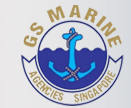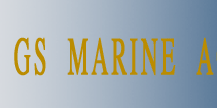| ship on rubber rafts, using ropes
and grappling hooks to board it. |
| |
| Another group parachuted onto
the ship's deck, while a third was dropped on board by helicopter - freeing |
| the hostages and retaking control
of the vessel within 20 minutes. |
| |
| Three terrorists were 'killed'
in the process. The Malacca Strait, which lies between the Indonesian island |
| of Sumatra, Malaysia and Singapore,
is among the world's busiest shipping lanes. Western and Asian governments |
| have expressed concern that the
vital seaway could be targeted by terrorists. |
| |
| 'This training shows the capabilities
of these troops to be alert against terrorist attacks in Indonesian |
| waters and in the busy lane of
the Malacca Strait,' said Colonel Alfan Badarudin, who supervised the drill. |
| |
| Jemaah
Islamiyah, a South-east Asian spin-off of Al Qaida, has launched several land-based
terrorist attacks |
| across
Indonesia, most recently on the resort island of Bali last October. |
| |
| Security
analysts have posed a doomsday scenario where terrorists sink a vessel in one
of the Malacca |
| Strait's
narrow channels to block commercial shipping, or hijack an oil tanker and blow
it up near shore. |
| |
| Indonesia and Malaysia have both
rejected suggestions by the United States to have an American |
| counterterrorism unit based in the
area, but both countries agreed to conduct joint naval patrols with |
| Singapore and improve their anti-terrorism
capabilities. |
| |
| Indonesia has carried out a series
of ocean counterterrorism drills, and more than 250 marines participated |
| in yesterday's operation. - AP
|
| |
| |
| M'sian
police cripple pirate gangs in Malacca Strait: report | Published
March 13, 2006 |
|
| (KUALA LUMPUR) Malaysian police
have crippled four gangs of pirates preying on ships in the Malacca Strait |
| in ongoing operations to maintain
security in the waterway, local media said yesterday. |
| |
| Deputy Inspector-General of Police
Musa Hassan was quoted as saying the enforcement efforts had reduced |
| the incidence of piracy in the
strait. |
| |
| Marine police were also providing escorts
to tug boats or ships using the strait upon their request, |
| he
said. |
| |
| 'There is no doubt our enforcement
has reduced piracy attacks in the strait and we have made quite a |
| number of arrests,' he was quoted as
saying by Bernama news agency. |
| |
| He said some of the arrests were
kept under wraps because of ongoing operations. He did not elaborate |
| with further details of the arrests.
|
| |
| The
Malacca Strait, separating the Indonesian island of Sumatra and peninsular Malaysia,
is one of the |
| world's
most important waterways, with 50,000 ships carrying about one-third of world
trade passing |
| through
it each year. |
| |
| It
is also notoriously vulnerable to pirate attacks. |
| |
| Malaysia
last year set up a coast guard unit to boost security in the waterway. |
| |
| Malaysia,
Indonesia and Singapore have also launched joint military air patrols to aid efforts
to |
| counter piracy and
terrorism in the area. - AFP |
| |
| Tanker
rates to Asia may fall on April demand | Published
March 15, 2006 |
| |
| (LONDON) The cost of shipping
crude oil from the Middle East to Asia on 2 million-barrel tankers, |
| little changed for a second week,
may fall as charterers wait for Persian Gulf producers to release |
| loading dates of April exports. |
| |
| Most
oil exported from Middle East suppliers such as Saudi Arabia, the world's largest,
and Iran is |
| sold on
annual contracts. Producers release dates of when cargoes are scheduled to load
on tankers |
| a month
in advance so buyers can make shipping arrangements. |
| |
| 'Most of the dates for April cargoes
will be out towards the end of the week so I doubt that we will |
| see much demand for tonnage before
then,' said Christian Arentz Grastvedt, a broker at Johan G Olsen |
| Shipbrokers in Kristiansand, Norway.
|
| |
| 'Besides,
charterers are not rushing to book before getting the dates and there are enough
ships to |
| meet demand
anyway.' |
| |
| There were no bookings for very
large crude carriers, or VLCCs, on the benchmark route to Japan or the |
| US yesterday, according to shipbrokers'
reports. |
| |
| Rates, measured in the market's
Worldscale point standard, were on Monday assessed to Japan at |
| WS 87.5, or US$1.75 a barrel, according
to data compiled by Bloomberg. To the US, rates were yesterday |
| at WS 87.5, or US$2.65 a barrel. |
| |
| Worldscale
points are a percentage of a nominal rate, or so-called flat rate, for a specific
route. |
| Flat rates,
quoted in US dollars a tonne, are revised annually by the Worldscale Association,
based |
| in London and
New York, to reflect changing fuel costs, port tariffs and exchange rates. |
| |
| 'I
expect activity to pick up next week,' Mr Arentz Grastvedt said. |
| |
| Freight
rates for VLCCs have fallen 14 per cent in the past month. Transport costs usually
decline |
| in March as the
end of the northern hemisphere's winter cuts demand for heating oil. - Bloomberg |
| |


